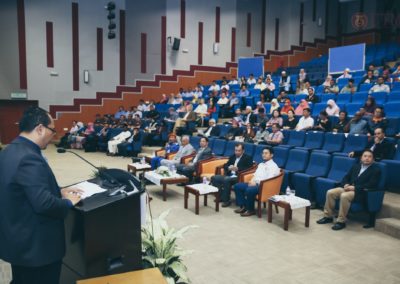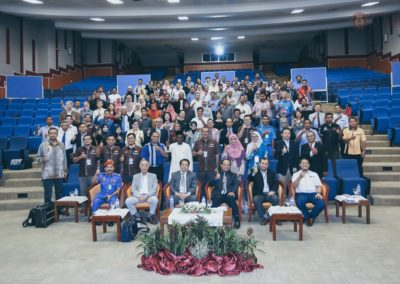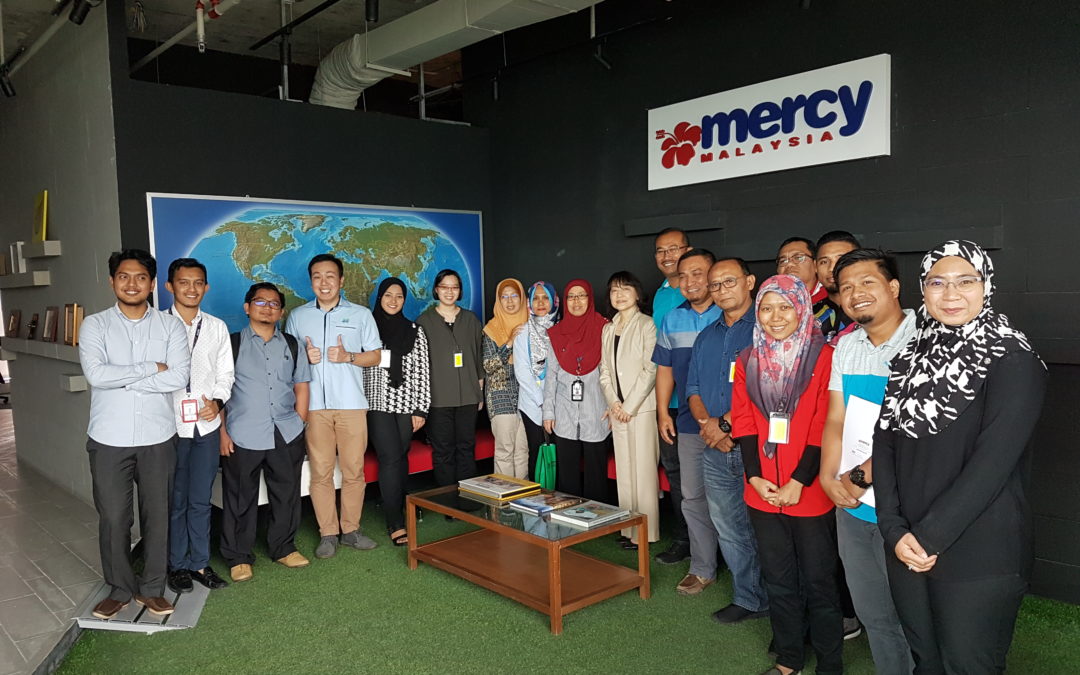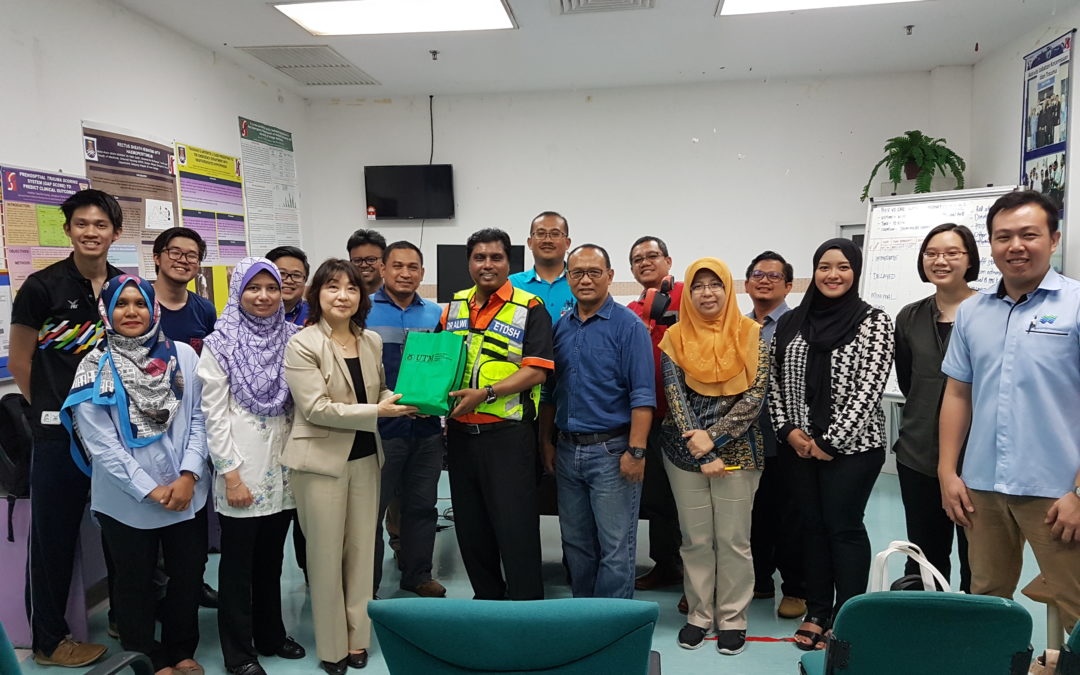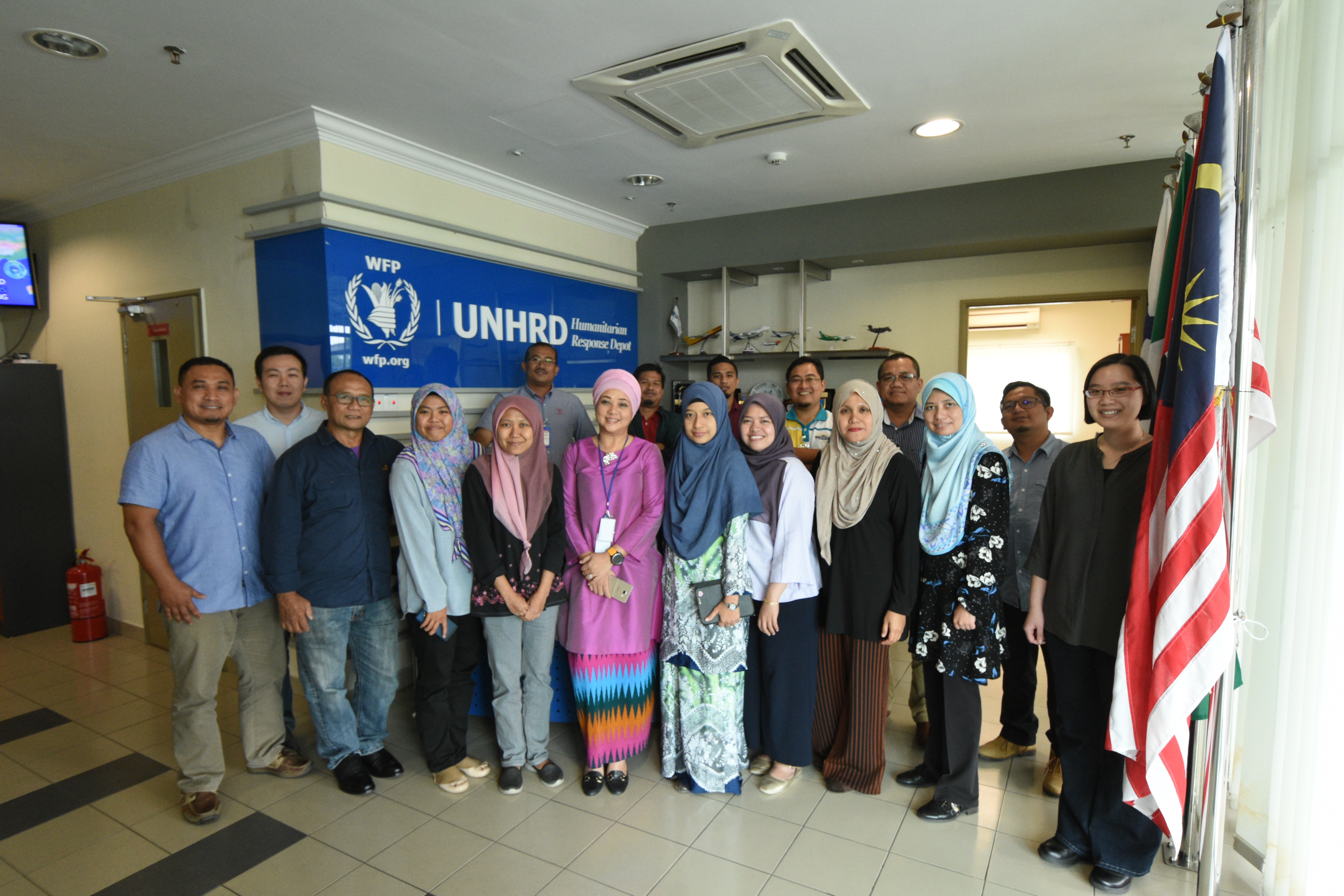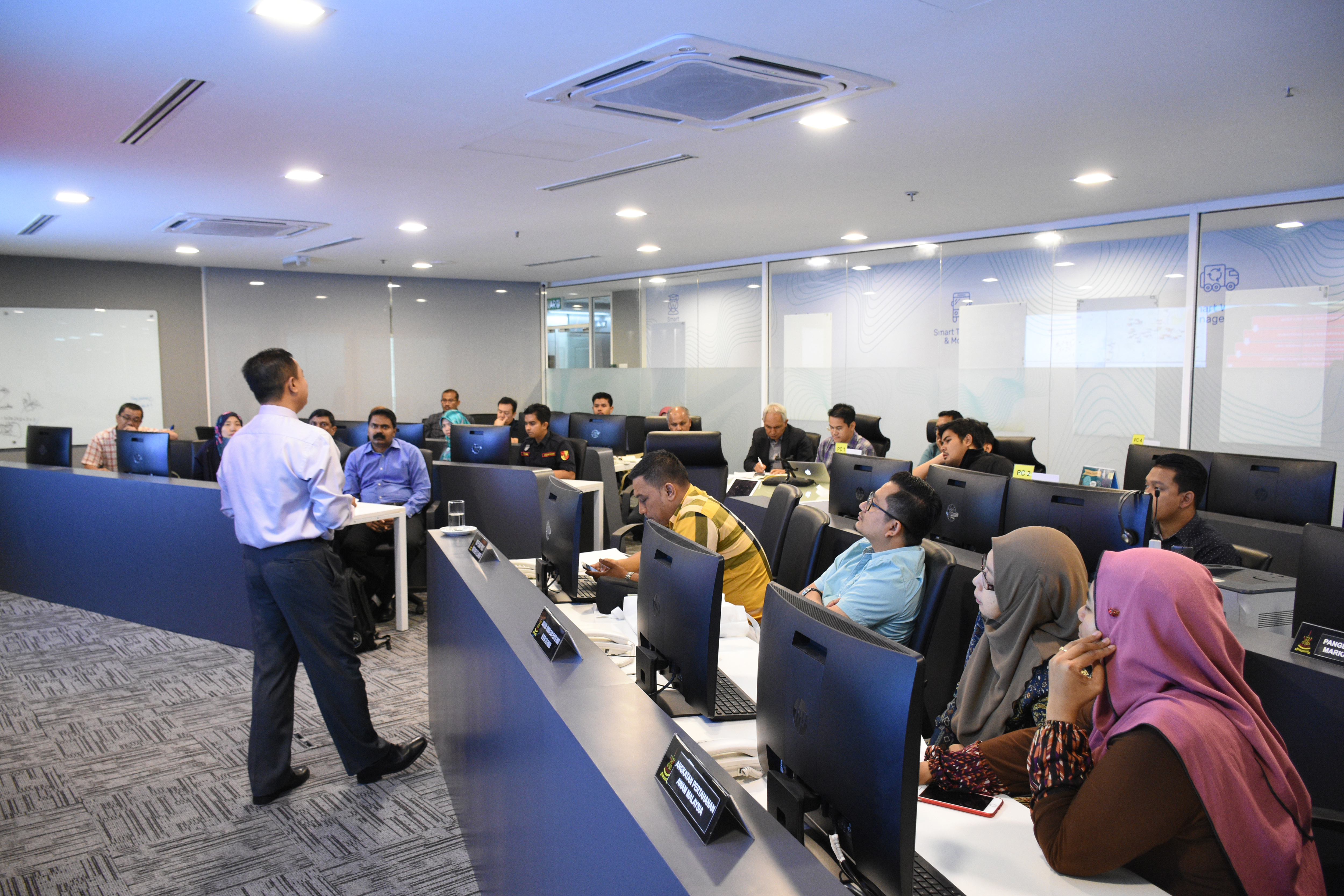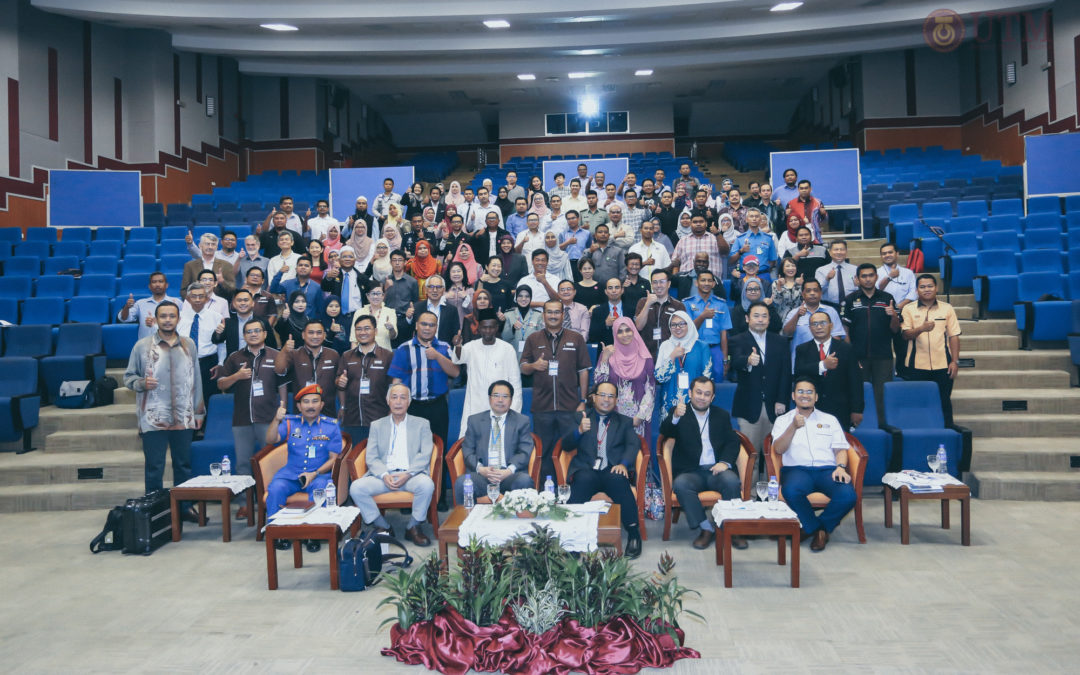
DPPC & MDRM Open Day 2018
The Disaster Preparedness and Prevention Centre(DPPC) and MDRM Open Day 2018 was held on 19th April 2018 at UTM Kuala Lumpur in the presence of MJIIT management, DRM agencies, NGO’s and experts from Malaysia and Japan. This program was aimed to introduce the latest activities in training, research and other projects of DPPC amongst stakeholders involved in disaster risk management areas. This program also targeted prospective MDRM students by exposing them to the programme after its 2 years implementation. This program has divided into two session; morning sessions that focused on knowledge sharing session in DRM practices from Malaysia and Japan; and afternoon session that involved engagements with DRM volunteer groups.
The day kicked off with the opening address by MJIIT Dean, Prof. Dr. Ali Selamat followed by talks by Dr. Matsuura on “Role of Science and Technology for Disaster and Climate Change Resilience” and Prof. Dr. Shinji Egashira on “ICHARM’s Role in Supporting DRM Agencies and Experts Through Research and Training”. The program continued with talks and presentation by DPPC partners including, Prof. Dr. Kaoru Takara, Dean of Graduate School of Advanced Integrated Studies in Human Survivability(GSAIS), Kyoto University ; Dr. Hariyati Shahrima Abdul Majid, MDRM lecturer from MERCY Malaysia; Dato’ Haji Zakaria Mohamad, DPPC Fellow and Scientific Expert Panel to NADMA and Dr. Rashdan Hj. Rahmat, MDRM alumni.
The program continued in the afternoon with engagement session with volunteer groups on capacity building needs for Disaster Risk Reduction and Management. During this one-day program, a meet and greet session was held in parallel in which participants were able to get more information regarding to the DPPC activities and also MDRM programme from the faculty members and current students. Many participants had shown their interests with the research activities conducted by DPPC and also MDRM and CPT programmes organized by MJIIT.
For photos of this event, please visit HERE
